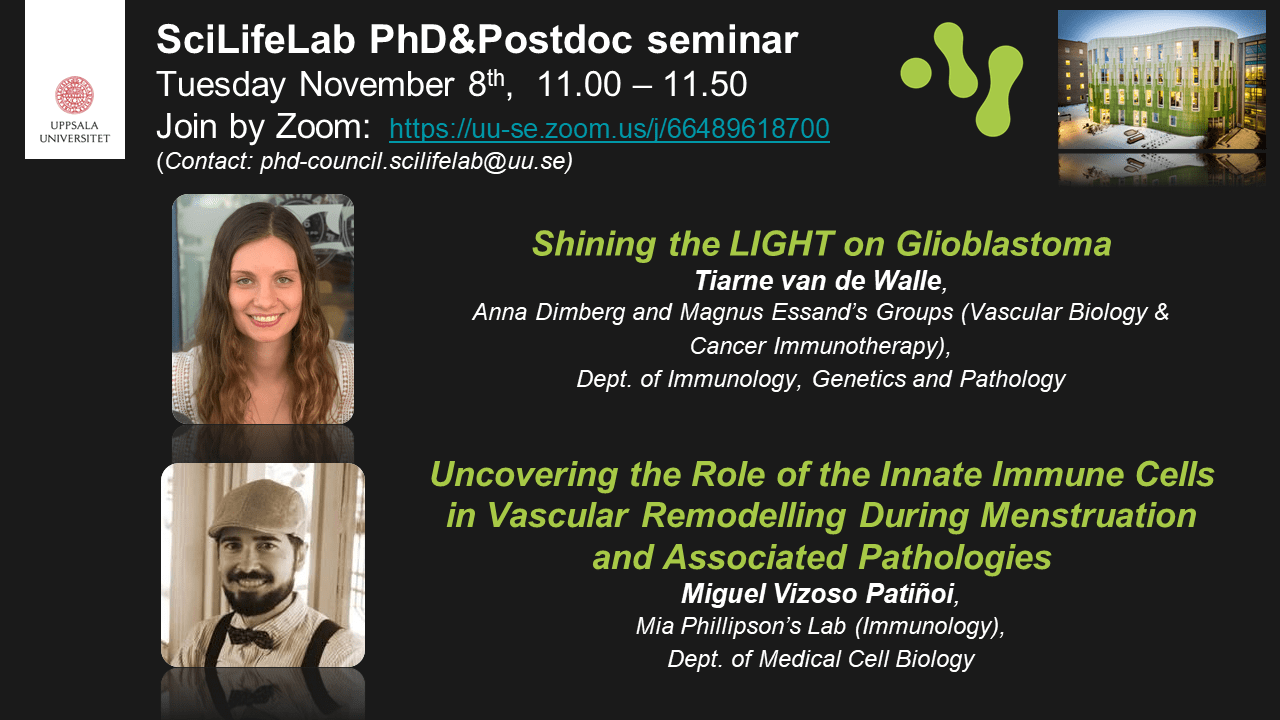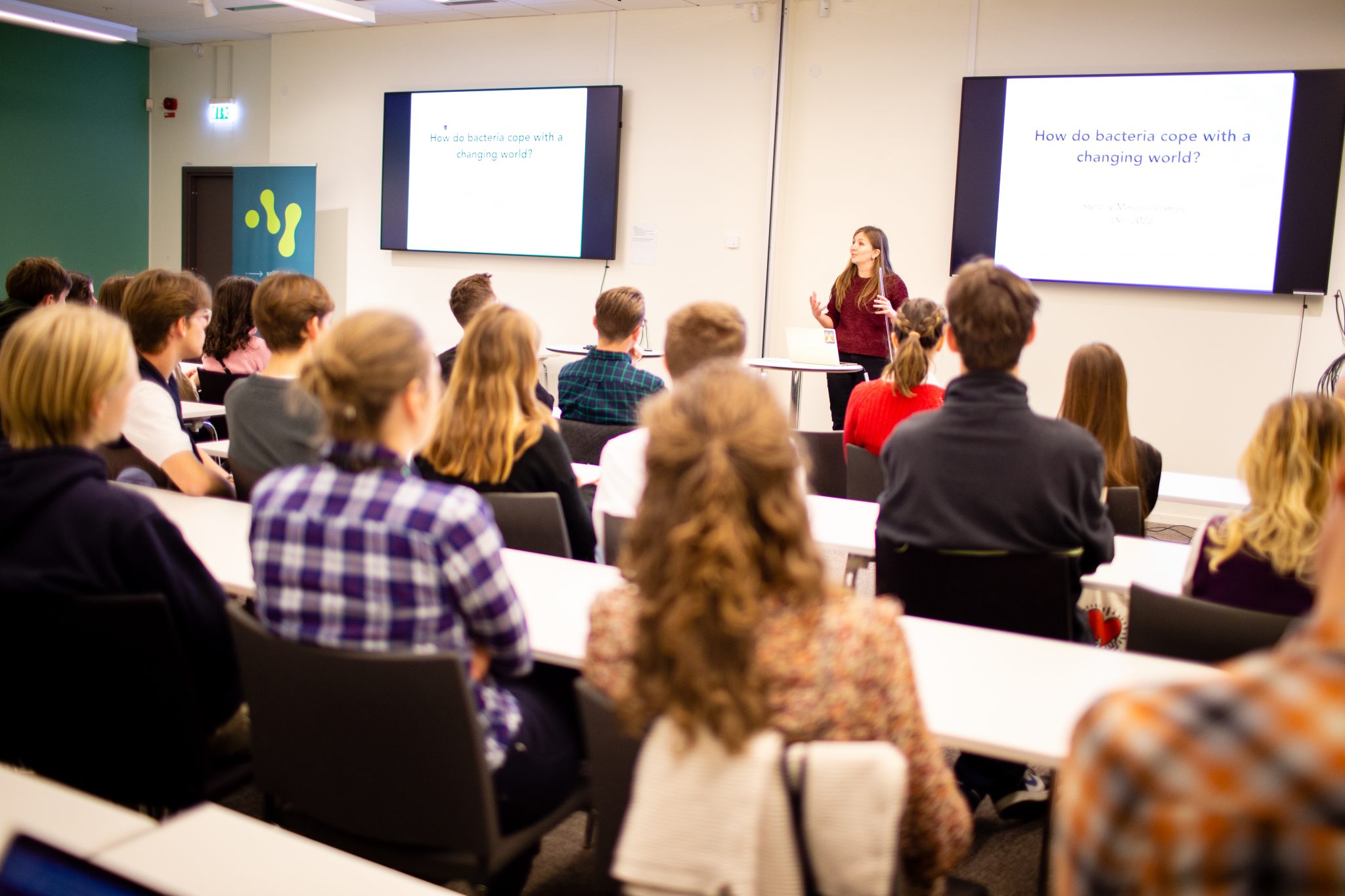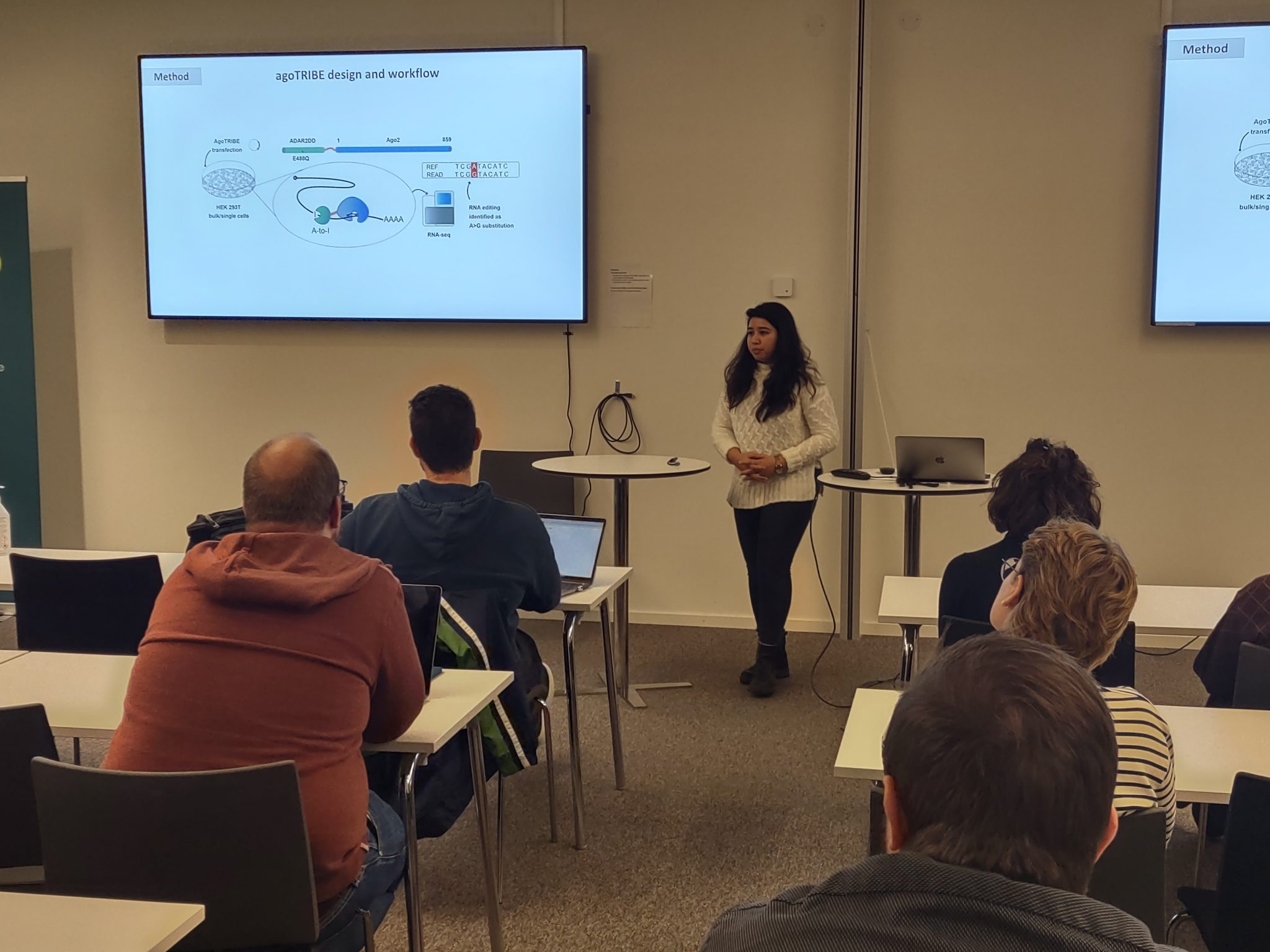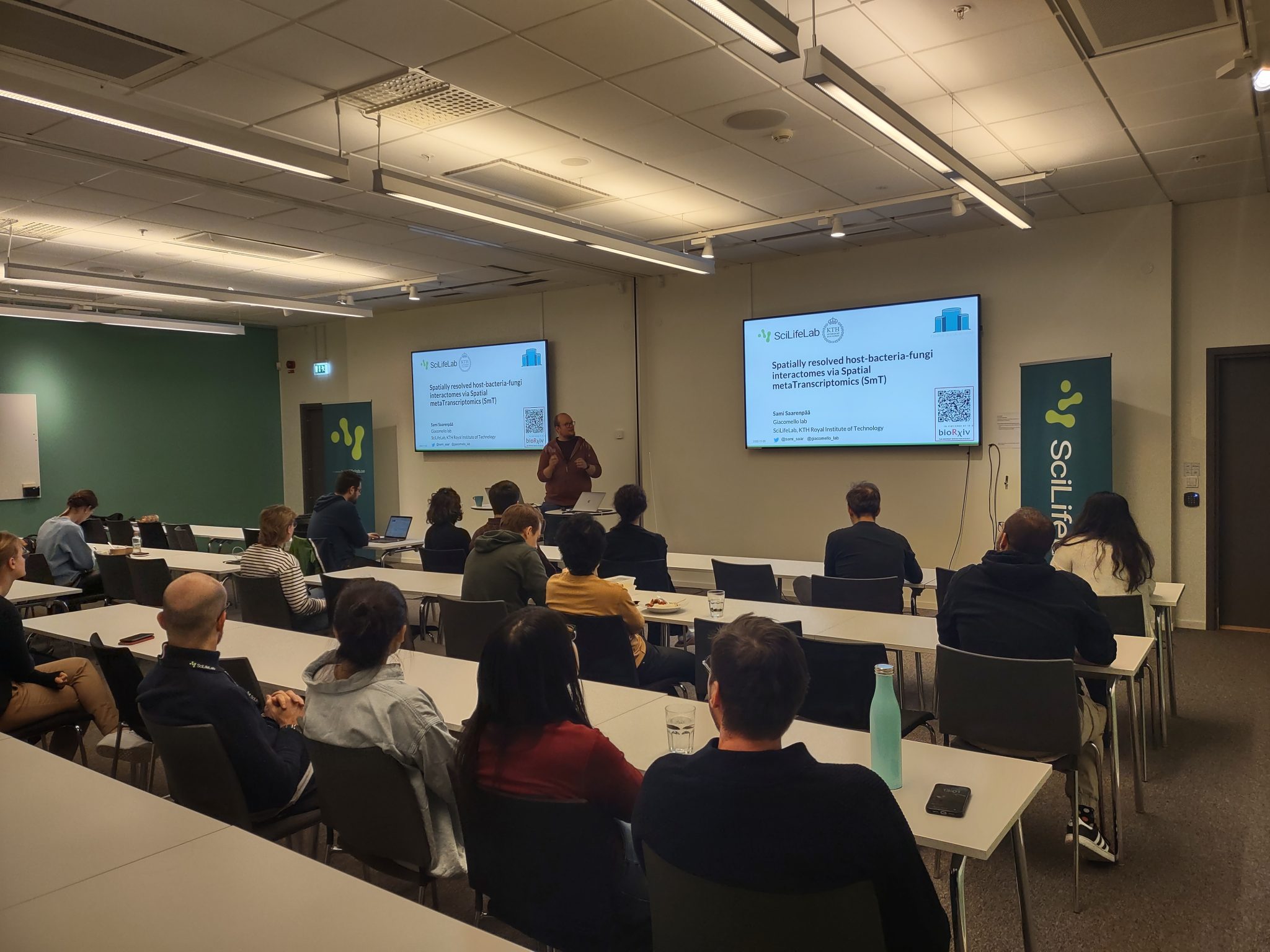SciLifeLab Uppsala PhD&Postdoc Online Seminar Series – Immunology Theme
November 8 @ 11:00 – 12:00 CET

Welcome back to the SciLifeLab Uppsala PhD&Postdoc seminar series!
This seminar will take place on Tuesday November 8th from 11h to 11:50h on Zoom (https://uu-se.zoom.us/j/66489618700)
For this occasion the speakers will be:
1. Tiarne van de Walle, PhD Student at Anna Dimberg and Magnus Essand’s Labs (Vascular Biology & Cancer Immunotherapy), Dept. of Immunology, Genetics and Pathology, Uppsala University
Title: Shining the LIGHT on Glioblastoma
This seminar will take place on Tuesday November 8th from 11h to 11:50h on Zoom (https://uu-se.zoom.us/j/66489618700)
For this occasion the speakers will be:
1. Tiarne van de Walle, PhD Student at Anna Dimberg and Magnus Essand’s Labs (Vascular Biology & Cancer Immunotherapy), Dept. of Immunology, Genetics and Pathology, Uppsala University
Title: Shining the LIGHT on Glioblastoma
Summary:
Glioblastoma is the most aggressive primary brain cancer and is resistant to immunotherapy, which is largely due to poor T cell infiltration. Here, we screened a panel of lymphoneogenic cytokines, from which we selected LIGHT/TNFSF14 as the most promising candidate for treatment of glioma. Then, we utilized a brain endothelial cell-targeted vector to express LIGHT on the glioma vasculature. Systemic treatment with this novel therapeutic agent resulted in prolonged survival, and promoted efficient T cell infiltration and anti-tumour immune responses. As such, our work demonstrates that tailoring the vascular phenotype through vessel-targeted expression of LIGHT is a promising therapeutic strategy, which has broader implications for treatment of other immunotherapy-resistant cancers.
2. Miguel Vizoso Patiñoi, Researcher at Mia Phillipson’s Lab (Immunology), Dept. of Medical Cell Biology, Uppsala University
Title: Uncovering the role of the innate immune cells in vascular remodeling during menstruation and associated pathologies
Title: Uncovering the role of the innate immune cells in vascular remodeling during menstruation and associated pathologies
Summary:
More than 10% of women worldwide suffer from abnormal uterine bleeding (AUB). Current standardized therapies for AUB include ovulation blockade and hysterectomy, which both are highly aggressive and interfere with fertility. Thus, there is an unmet clinical need for more effective and non-invasive treatments. The scarcity of efficient therapies is at least partly due to the lack of reproductive experimental models, as well as that the underlying mechanisms resulting in AUB are largely unknown. However, innate immune cells have been documented to be actively recruited to the endometrium during physiological menstrual cycle and pregnancy. Based on our recent discoveries of a pro-angiogenic subpopulation of neutrophils, in addition to novel functions of macrophages important for blood-vessel maturation, I will in this project, define the contribution of innate immune cells in the vascular phenotype of AUB. The main goals addressed by 2 work packages (WPs) are:
- To develop the first humanized murine uterus to characterize how human endometrial epithelial cells (hEECs) participate of the vascular network remodeling in vivo. To this end, EECs from healthy and AUB donors will be orthotopically transplanted in immunocompromised mice and its impact on vasculature remodeling will be measurable in real time by intravital microscopy upon menstrual cycle induction. Samples will be also submitted for scRNAseq to reveal the transcriptomic networks connecting the epithelium (human-origin) and stroma/endothelium (murine-origin) compartments at different time points of the menstrual cycle.
- To assess whether the role of the innate immune cells in endometrial angiogenesis and vascular pruning differs depending on their interaction with healthy or pathogenic (AUB) derived hEECs.
Thus, this project will provide a novel model to study endometrial human physiology in vivo, to enable the discovery of new mechanisms involved in AUB. Generated insights will then be used to pursue opportunities to translate the findings into clinical practice and provide non-invasive therapies to treat AUB disorders.


